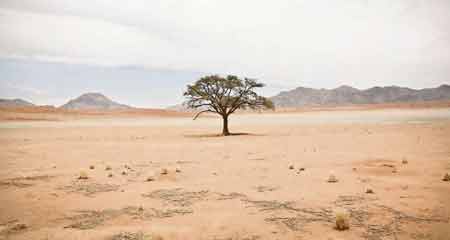
In a proactive step to combat climate change, the Federal Government has instructed all National Youth Service Corps (NYSC) members to plant at least 10 trees before their Passing Out Parade (POP).
The Minister of Youth Development, Dr. Jamila Bio Ibrahim, made the announcement during the national flag-off of the NYSC tree-planting campaign held at the permanent orientation camp in Keffi, Nasarawa State.
Noting the ministry’s collaboration with the African Union Development Agency (AU-NEPAD) to drive the tree-planting initiative, the minister said that the effort is crucial to President Bola Ahmed Tinubu’s vision and commitment to planting 25 million trees by 2030.
She underscored the programme’s critical role in combating climate change and environmental issues, urging corps members to be catalysts for transformative change through innovative solutions in their communities.
She said, “With an estimated 400,000 corps members passing through the scheme annually, each corps member planting 10 trees translates to 4 million trees annually, yielding 20 million trees in the next 5 years. The NYSC, working with all stakeholders, has the capacity to deliver on this nationally determined contribution.”
The minister noted how desertification has depleted valuable agricultural land, resulting in tensions and conflicts over land use. This has created significant challenges for farmers, herders, and communities.
She stated: “As you are all aware, climate change is exerting a profound impact on Nigeria, just like the rest of the world. Climatic variation is physically evident in desertification resulting from drought, especially in the northernmost states, and erosion caused by floods in the South.
“Moreover, the discernible shifts in weather patterns, manifesting in the frequency and intensity of droughts, floods, and temperature variations, have negatively impacted our agricultural produce. Our forests have dwindled, our air quality has deteriorated, and our soil has suffered. We must demonstrate a collective will to act in defence of our environment and indeed our well-being.
“It needs no stressing that tree planting is one of the most effective ways of fighting desertification, erosion, and other negative outcomes of the depletion of the ozone layer, including insecurity. Even a small effort makes a huge difference in conserving the environment.”
However, she said, the success of this endeavour hinges on the energy and innovative spirit of our youth
She called on all stakeholders, including community leaders and relevant government agencies at all levels, to give the programme the desired support to achieve a healthier environment for both present and future generations.
Dr. Ibrahim stressed that Nigerian youth represent society’s most vibrant and dynamic segment, noting their unparalleled creativity, energy, and unwavering commitment to driving positive change as critical components for the project’s success.
She therefore urged the corps members to harness these essential attributes effectively to ensure the programme’s success.






